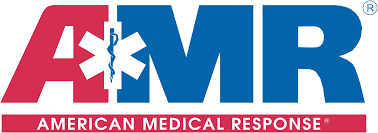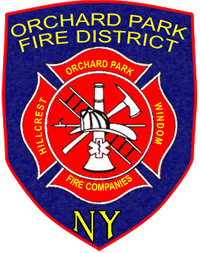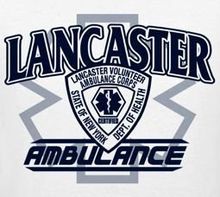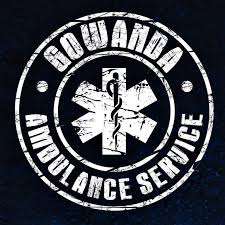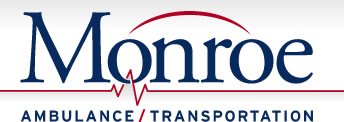Advanced life support (ALS) must be utilized when available, appropriate and in the best interest of the patient. ALS or paramedic level care should never be denied a patient based on financial considerations or based on which agency is available to provide the ALS service. Both the New York State Basic Life Support Protocols and the WREMS Adult & Pediatric Advanced Life Support Protocols specify which patients should receive ALS care. These protocols must be followed. In addition, if a given dispatch center utilizes a priority medical dispatch protocol and can determine by caller interrogation that an ALS response is warranted, ALS should then immediately be dispatched (if available). Keep in mind however that BLS providers should not await the arrival of ALS to the scene and should initiate transport if ALS has not arrived and the patient is ready for transport. A BLS unit can intercept with an ALS unit en route to the emergency department in these events.
POLICIES AND PROTOCOLS
WREMAC PROTOCOLS
NYS CFR PROTOCOLS
NYS BLS PROTOCOLS
WREMAC ALS PROTOCOLS
WREMAC POLICIES PAGE
WREMAC PRECEPTORS ARE CREDENTIALED ON A REGIONAL BASIS AND MAY VALIDATE SKILLS FOR ANY PROVIDER WITHIN THE WYOMING-ERIE REGION
View the Preceptor Database
FREQUENTLY ASKED QUESTIONS
Can a BLS unit cancel an ALS unit?
In general it is preferred that BLS units not cancel ALS units. It is desirable that the physical assessment and determination of the need for ALS be performed by the senior most care provider. However, if a BLS provider can provide all the patient care potentially needed by a patient (as outlined in the WREMS Adult & Pediatric Advanced Life Support Protocols) he/she may cancel an ALS unit. Additionally, if the ETA of an ALS unit is such that the patient can be transported to the Emergency department in a more timely fashion than ALS can be delivered to the patient, it would be appropriate to cancel the ALS unit and transport the patient to the emergency department. ALS should never be canceled prior to performing a complete physical exam and should never be canceled based on financial or political considerations.
What is the difference between ILS and ALS?
ILS (Intermediate Life Support) providers [AEMT-I] are certified Emergency Medical Technicians with the added ability to perform advanced airway management (e.g., endotracheal intubation), cardiac rhythm recognition, manual defibrillation and IV fluid therapy. ILS providers also typically have additional training in patient assessment, trauma management and pediatrics.
ALS (Advanced Life Support) providers [AEMT-P] are typically referred to as paramedics. Besides being able to perform all the skills of an ILS provider, paramedics can also perform more advanced airway management procedures (e.g., needle cricothyrotomy and jet ventilation), chest decompression, cardiac pacing and drug administration. Additionally, paramedics receive extensive training in patient assessment, trauma management, cardiac rhythm recognition and treatment and pediatrics.
Finally, New York State also recognizes “Critical Care” providers [AEMT-CC] as ALS providers. However, training for CC’s lies somewhere in between ILS and paramedic. As a result, CC’s may not be able to perform all the interventions of a paramedic.
Who do I contact about CFR, EMT, AEMT-I or Paramedic Training?
For CFR or EMT training (including original and recertification) in Erie County contact the Erie County Division of Emergency Medical Services at (716) 681-6070. Courses typically run concurrently with the fall and spring semesters. Check out our EMS Trainingpage for upcoming course information.
For AEMT-I or AEMT-P training (including original and recertification) in Erie County contact the Erie Community College Department of EMT at (716) 851-1781. Courses typically run concurrently with the fall and spring semesters. Check out our EMS Trainingpage for upcoming course information.
What happens if I don't provide my annual skills demonstrations?
Annual skills demonstrations must be performed in accordance with the WREMS CME requirements as mandated by the NYSDOH in policy statement 95-07. Failure to complete a given skill demonstration in a given year precludes a care provider from operating at an advanced level until such time that the skill demonstration has been made up. Individuals not meeting the CME requirements must be taken off-line by their respective EMS agency. Operating at an advanced level when not current with CME requirements is the equivalent of practicing medicine without a license since medical direction privileges are withdrawn once CME requirements lapse.
Who can do clinical observation time at ECMC?
In order to be eligible to do clinical observation time at ECMC, one of the following conditions must be met:
1) You must currently be a student enrolled in an EMT or AEMT course that is affiliated with ECMC and has a pre-arranged clinical observation schedule. Only those individuals 18 years or older shall be eligible to perform clinical observation time. All clinical observation times shall be scheduled by the course coordinator.
2) You must currently be an EMT or AEMT in an EMS agency that receives medical direction from the Erie County Medical Center. Only those individuals 18 years or older shall be eligible to perform clinical observation time. All clinical observation times shall be scheduled by contacting the Prehospital Care Coordinator at 898-3525.
Which hospital should pregnant trauma patients be transported to?
Pregnant trauma patients who meet the trauma triage guidelines should be transported to an age appropriate trauma center. Patients 16 years of age or older should be transported to the Erie County Medical Center while pregnant trauma patients younger than 16 years of age should be transported to Children’s Hospital of Buffalo. It is important to remember that the survival of a fetus typically depends on the survival of the mother. Therefore, prehospital care resuscitation efforts should be directed towards the mother. Any pregnant patient who meets the trauma triage guidelines must be transported to the appropriate trauma center regardless of the patient’s wishes to be transported elsewhere.
Do trauma patients have to be transported to a trauma center?
Patients who meet the trauma triage guidelines must be transported to an appropriate trauma center regardless of a patient’s desire to be transported to another facility. Patients 16 years of age or older should be transported to the Erie County Medical Center while patients under 16 years of age should be transported to Children’s Hospital of Buffalo. If there is any doubt as to which facility a patient should be transported to, medical direction should be consulted. Trauma patients with an unstable airway or in cardiac arrest must be transported to the closest hospital.
Should periodic serologic testing to monitor hepatitis antibody concentration be performed on HBV immunized health-care workers?
Currently the Center For Disease Control does not recommend routine administration of hepatitis B booster doses or periodic serologic testing to monitor antibody concentrations for HBV immunized health-care workers. The CDC does however recommend that health-care workers considered to be at significant risk for acquiring hepatitis B be immunized for hepatitis B. [The Occupational Safety and Health Act requires employers to provide hepatitis B vaccine to employees considered to be at “high risk” at no expense to the employee.] Also, the CDC recommends post vaccination testing (one to two moths post vaccination) for antibody to hepatitis B surface antigen response in health-care workers who have blood or patient contact and are at ongoing risk for injuries with sharp instruments or needle sticks. Knowledge of antibody response aids in determining appropriate post exposure prophylaxis. In cases where post immunization antibody response develops, vaccine recipients are virtually 100% protected against clinical illness. Clinical trials of the hepatitis B vaccines have shown that 5%-20% of the patients vaccinated fail to develop antibody response and require an additional vaccination series. This can only be determined by post vaccination testing as stated above.
Can a patient who is intoxicated, demented or in shock refuse treatment and/or transportation?
In general, a patient who is not of sound mind (e.g., demented, intoxicated, head injury, in shock) should not be allowed to refuse care since they cannot truly provide informed consent. As a rule, prehospital care providers should treat these patients until the patient’s altered mental resolves and the patient then provides informed consent to refuse care, or until a family member, health care proxy of other advanced directive such as a DNR is located and limits further care.
Does our ILS unit need to do anything special to offer Pediatric Intermediate Life Support (PILS)?
Any unit that currently offers Intermediate Life Support services can also offer Pediatric Intermediate Life Support (PILS). In fact, it is expected that ILS units provide this level of service. No special authorizations are needed to render PILS. The only requirements are that ILS members be trained in PILS in an appropriate training course and that the necessary equipment be placed on ILS units. We strongly encourage all ILS agencies to offer PILS if not already doing so.
Which defibrillation protocol should our Intermediate Life Support unit utilize?
Intermediate Life Support Units should currently be using the 1995 WREMS Defibrillation Protocol established for Certified First Responders & Emergency Medical Technicians. Intermediates should not be using the defibrillation protocol in the WREMS Second Edition Adult & Pediatric Life Support Protocols since this protocol erroneously limits defibrillation shocks for ILS providers.
Who should I contact if I suspect that a senior citizen is being neglected or is being abused?
Any time you suspect that a senior citizen is being neglected or abused, Senior Protective Services should be contacted at 858-6877. They will assign a case worker to investigate and if necessary intervene as an advocate for the neglected or abused senior citizen. If you need to contact Senior Protective Services after regular business hours, MERS control can be contacted at 898-3696. MERS will relay the information to Senior Protective Services the following morning.
Who should I contact if I suspect that a child is being neglected or is being abused?
Any time you suspect that a child is being neglected or abused, Child Protective Services should be contacted at 1-800-342-3720 24 hours a day. They will assign a case worker to investigate and if necessary intervene as an advocate for the neglected or abused child.

